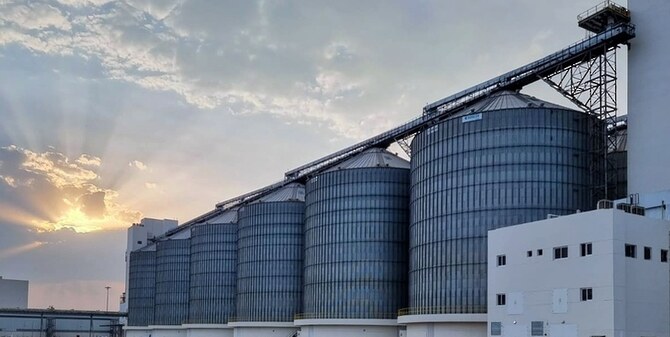JEDDAH: Oman has launched new food security initiatives, partnering with government entities and the private sector to strengthen supply chain operations and enhance sustainability.
The scheme, announced by the sultanate’s Ministry of Agriculture, Fisheries, and Water Resources, reflects the Gulf state’s commitment to long-term food security and economic diversification as part of its broader development goals.
Food security is a top priority for Oman, particularly in light of the increasing risks that climate change poses to global supplies.
The government has launched several initiatives, including the Food Security Strategy 2010-2020, which focuses on three key areas such as managing demand, boosting local production, and ensuring reliable imports, with specific goals to promote sustainable agriculture, rural development, and fisheries.
The country also launched the National Nutrition Strategy 2020-2030, introduced by the Ministry of Health in 2021, aligning with Oman’s Vision 2040. The initiative aims to improve nutrition, eliminate malnutrition, and enhance food security, which aligns with the World Health Organization’s Regional Nutrition Strategy.
Oman also unveiled the Sustainable Agriculture and Rural Development Strategy 2040, which aims to enhance the productivity and sustainability of agriculture, forestry, and fisheries. To further these goals, the sultanate also launched the Million Date Palm Plantation Project.
Salem bin Abdullah Al-Ghufaili, the agriculture ministry’s director general of food security, said that these projects include a sugar refining project — the first of its kind in the country, adding that it will be located on an area of 18,000 sq. meters at Sohar Port, with an annual production capacity of approximately 1 million tonnes, as reported by Oman News Agency.
Al-Ghufaili said that the plant will be equipped with state-of-the-art, European-made production lines, utilizing the latest technological advancements to produce refined sugar of the highest quality from raw sugar.
He also said the production will be distributed locally, regionally, and globally to meet increasing demand, adding that the project’s rapid progress, with 91 percent completion, is bringing it closer to the final stages.
In a statement to ONA, the director general added that Salalah Mills Co. is currently implementing a food industries center project in the Khazaen Economic City, with an estimated cost of 18.5 million Omani rials ($48.08 million) and a production capacity of around 1.4 million units per day in its first phase.
He added that the initiative includes an industrial bakery, production lines for frozen and semi-cooked pastries, equipment and silos for storing raw materials, and refrigerated and dry storage facilities for products.
Al-Ghufaili said that the undertakings include constructing wheat silos at Sohar Port, increasing storage capacity to 160,000 tonnes to ensure sufficient supplies for the population.
He also highlighted a new partnership between Khazaen Economic City and Zircon Food Industries Co. to build an integrated industrial complex for filtering, sorting, and packaging rice, sugar, and spices, along with large-scale food storage units.
He stressed the ministry’s efforts to secure essential foodstuffs and storage to ensure availability during emergencies while maintaining price stability and shielding the market from fluctuations caused by global economic crises.
The ministry also strategically stockpiles key items such as rice, wheat, and sugar, as well as lentils, powdered milk, cooking oil, and tea.






















